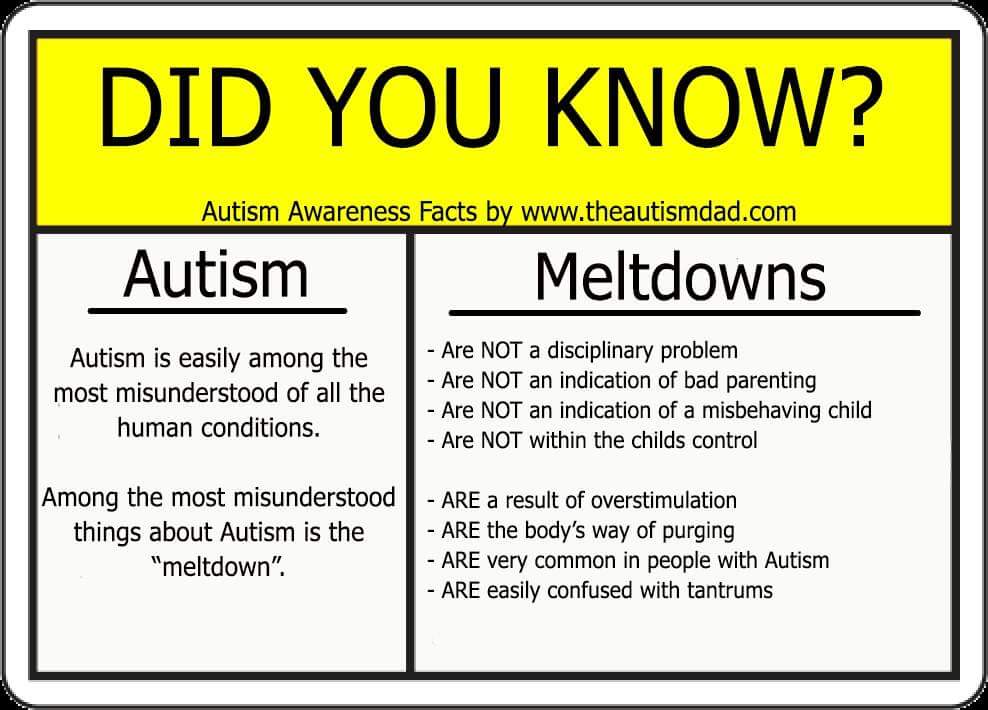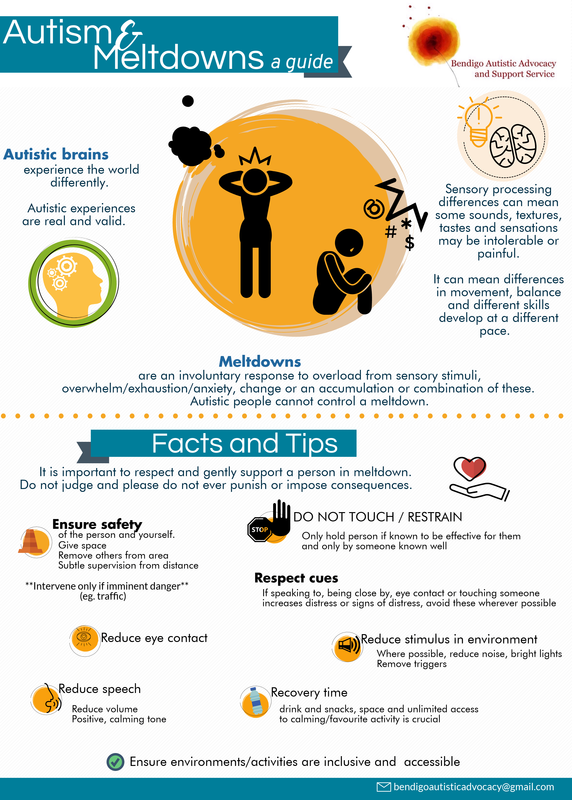

A child having a temper tantrum does have control over themselves, even if the tantrum results in attacking people, loud screaming, or breaking things.Ī person having a meltdown typically screams, attacks people, hurts themselves and breaks things, which may look like a temper tantrum, but there is no underlying intention or plan involved.

Knowing the difference between a typical temper tantrum in a young child and a meltdown in a person with autism helps to further understand what a meltdown is.Ĭhildren have temper tantrums with intention and purpose, such as control over people or situations, or as a call for attention. People with autism often have difficulty expressing when they are feeling overly anxious or overwhelmed, which leads to an involuntary coping mechanism-a meltdown. What is a meltdown?Ī meltdown is an intense response to overwhelming circumstances-a complete loss of behavioral control. It helps parents once they understand what a meltdown is, as then you are able to gain the ability to foresee the signs of a meltdown, as well as identify the causes, and reduce the frequency. If this sounds familiar, know that you are not alone. Most parents of children with autism do everything they can to avoid new or unexpected circumstances that may instigate overload that could lead to a meltdown. As a parent, it is distressing, as well as mentally tiring, and can be physically challenging. I know meltdowns are going to happen and I prepare as best as I can for them, which sometimes is all you can do.It is common for a person with autism to experience meltdowns.
#Kreed autism meltdown trial#
I know my limits, although it took a long time and a lot of trial and error to find them. I know that decompression is very necessary for me. I know to always have headphones when going into public places. I am very lucky that I have been able to determine what causes me to meltdown the most. That would be the most traumatic thing in the world for me. Since they were in mid-meltdown, they weren’t able to explain themselves and they got handcuffed and brought to the mental hospital. I’ve had autistic friends who have had that happen to them. One of my biggest fears is having a meltdown in public and having the police called. Meltdowns are incredibly scary and embarrassing as an adult. Does a meltdown always occur after a trip to the grocery store? Or maybe there is a certain noise that gets your child very upset? If you can either remove or adapt the situation, it could help lessen the meltdowns. You need to be a detective because we can’t tell you what is going on. Try and figure out the patterns in your autistic child’s meltdowns. I have some advice specifically for parents. Having my safe person squeeze my shoulders always helps.


Deep pressure also can lessen the intensity of the meltdown. Oftentimes, I just have to ride out the meltdown alone. I’m allowed to do things like punch my thighs or pinch myself, but if I start hitting my head, my support person will stop me, if there is one in the area. The biggest danger is me hitting my head repeatedly with my fist or banging my head into a wall. When I’m in a meltdown, I tend to try and hurt myself. My support people know the techniques to use to help me through the meltdown. Once that train departs the station, you’re stuck until the end of the route. And there is no way of stopping the meltdown. At the most, I’ll repeat one sentence over and over. I go practically non-verbal during meltdowns. It’s taken me years to be able to figure out and explain what causes me to meltdown and I can’t give out any of that information mid-meltdown. The possibilities are endless and most of the time, we can’t verbalize what is happening to us or why. Other times it could be because we had to mask all day and now have to deal with the consequences of holding in all our stimming. Sometimes there is too much stimuli for us to process. A meltdown will occur for a number of reasons. This is one of the most important lessons I can give to neurotypicals who want to support us.


 0 kommentar(er)
0 kommentar(er)
